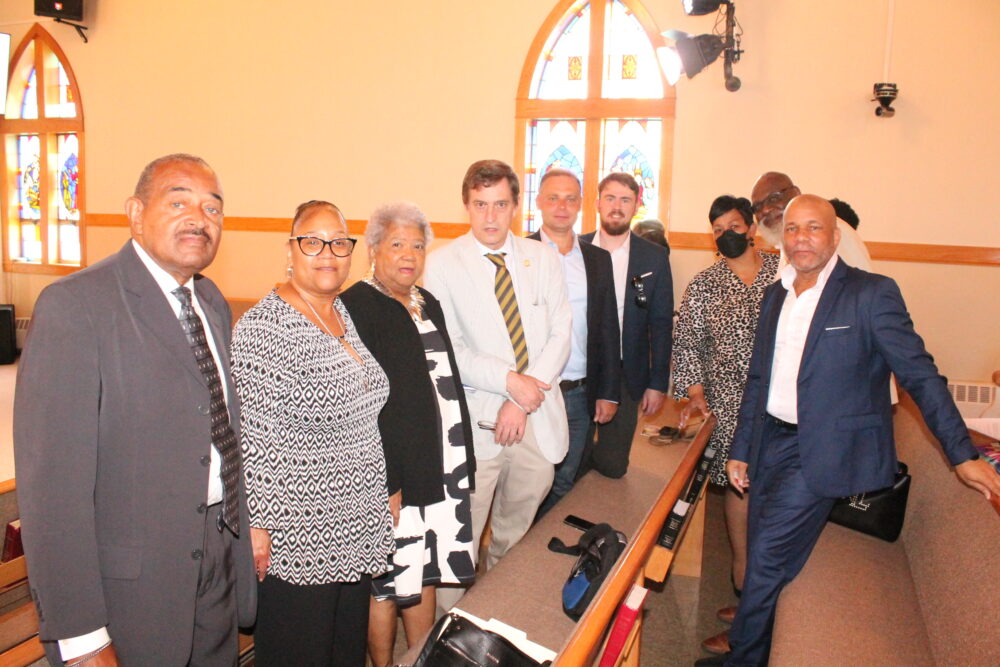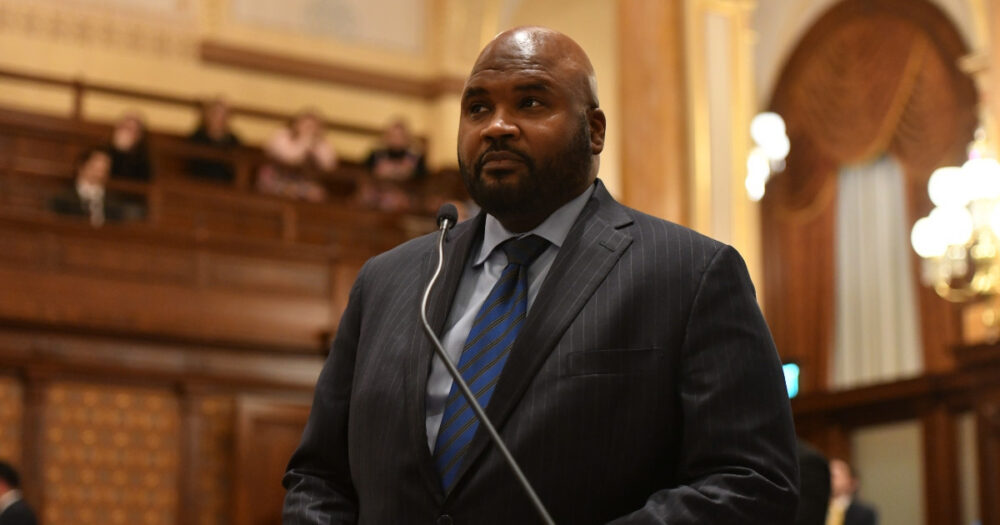Fraudsters stole more than half the money paid out by the state from a special pandemic unemployment fund, pilfering nearly $2 billion in federal money that was supposed to help out-of-work Illinoisans, according to a state audit released Thursday.
The audit offers the first estimate for Illinois’ share of the mammoth fraud that swept the country during the pandemic as states were hit with a deluge of unemployment claims. The audit covers much of the period the program was in use, from July 2020 through June 2021.
Advertisement
The Illinois Department of Employment Security acknowledged in November 2020 that more than 212,000 fraudulent unemployment claims had been filed, but has never released a dollar estimate on the theft despite requests from reporters and lawmakers.
The figures in the state auditor general’s report fueled Republicans’ complaints that Democratic Gov. J.B. Pritzker, who’s up for reelection, mismanaged the pandemic-strained unemployment system.
Advertisement
The fraud had been no secret since earliest days that the federal government created the Pandemic Unemployment Assistance program.
The program was meant to pay people not usually covered by unemployment insurance, such as gig workers or the self-employed. Federal unemployment officials and law enforcement openly warned that thieves, many of them overseas, were jamming states’ online portals with fake claims.
States struggled to siphon out the good claims from the fraudulent as they rushed to implement the new program amid a pandemic that shut down state offices even as the agency’s work became more complicated.
The Pritzker administration declined to make the head of the state unemployment agency, Kristin Richards, available Thursday to answer questions about the audit.
In a four-page statement, the agency blamed the failure to stop payment on fraudulent claims on the federal government under then-President Donald Trump, and said Illinois “sounded the alarm over insufficient and flawed federal guidance” from the start of the program in spring 2020.
“The fraudsters illicitly got federal money — not state — because the Trump administration designed a uniquely flawed system,” the agency said.
But a Tribune investigation published a year ago found the problems in Illinois were exacerbated by IDES’ failure to follow federal recommendations to adopt free fraud-fighting tools made available before the pandemic, while also being slow in developing other processes to ferret out fraud.
The audit didn’t review those failures, let alone determine how much they may have boosted the fraud tab. But the audit found that, of the $3.6 billion in Pandemic Unemployment Assistance paid out from July 2020 through June 2021, nearly $1.9 billion was tied to fraud, the vast majority in the form of identity theft.
Advertisement
Without a clear way to confirm people’s identities, the federal program became particularly susceptible to fraud because the state typically lacked data from employers on who the targeted workers were and what they were paid.
Auditors called the level of fraud “unprecedented,” with “fraudsters using highly sophisticated techniques to take advantage” of the pandemic’s unique conditions.
The audit also found that the state agency failed to “maintain accurate and complete” data on people filing claims through the program. In response to the finding, the agency said it was working to improve its systems “to ensure claimant data is complete and reliable.”
Defending its performance during the pandemic, IDES said it “stopped roughly $40 billion in fraudulent payments across state and federal programs” through the end of last year.
“IDES has saved tens of billions in government funds through enhanced integrity measures, including implementing new login software that utilizes security industry best practices and launching new data analysis tools to verify applicant identities and claims,” the agency said.
The department also sought to downplay the scope of the fraud in Illinois in comparison with other states and noted that because the money came from federal coffers, the fraud in the program did not contribute to the outstanding debt of $1.8 billion in the state’s unemployment insurance trust fund.
Advertisement
The audit may not cover the full scope of pandemic-related fraud.
The state paid out an additional $3.8 billion under another federally funded program that boosted claim checks by $600, initially, then $300. The audit did not offer a figure of fraud tied to that program.
On top of that, the Tribune has reported on how thieves had been hijacking legitimate claims to steer payments to the thieves’ accounts.
The audit also does not address the frustration of Illinoisans whose names or accounts were improperly used by fraudsters. Victims of the fraud have reported maddening experiences with the unemployment agency, particularly at the height of the pandemic: struggles to get someone at the department to pick up the phone or return messages, and — after reporting fraud — getting the state to actually stop payments to the thieves, in what became, in essence, slow-motion thefts.
IDES previously told the Tribune that, while it worked “vigilantly” to combat fraud, federal officials should provide states with better tools.
That answer hasn’t placated Republicans, who last summer pushed for a broader investigation of how the department handled fraud.
Advertisement
Senate GOP leader Dan McConchie of Hawthorn Woods issued a statement Thursday calling the audit “further evidence of the mismanagement within IDES that has been so clearly evident throughout the pandemic.”
“Had Pritzker prioritized the issue and not been so focused on arbitrarily shutting down businesses and then criminalizing them for noncompliance of his mandates, these problems could have been mitigated,” McConchie said.
Thursday’s audit did not critique the agency’s efforts to prepare for or handle the fraud, but a 2021 audit, covering the early months of the pandemic, found the agency paid hundreds of claims to people whose birthdays would have made them older than 90 or younger than 14, sometimes just weeks old.







